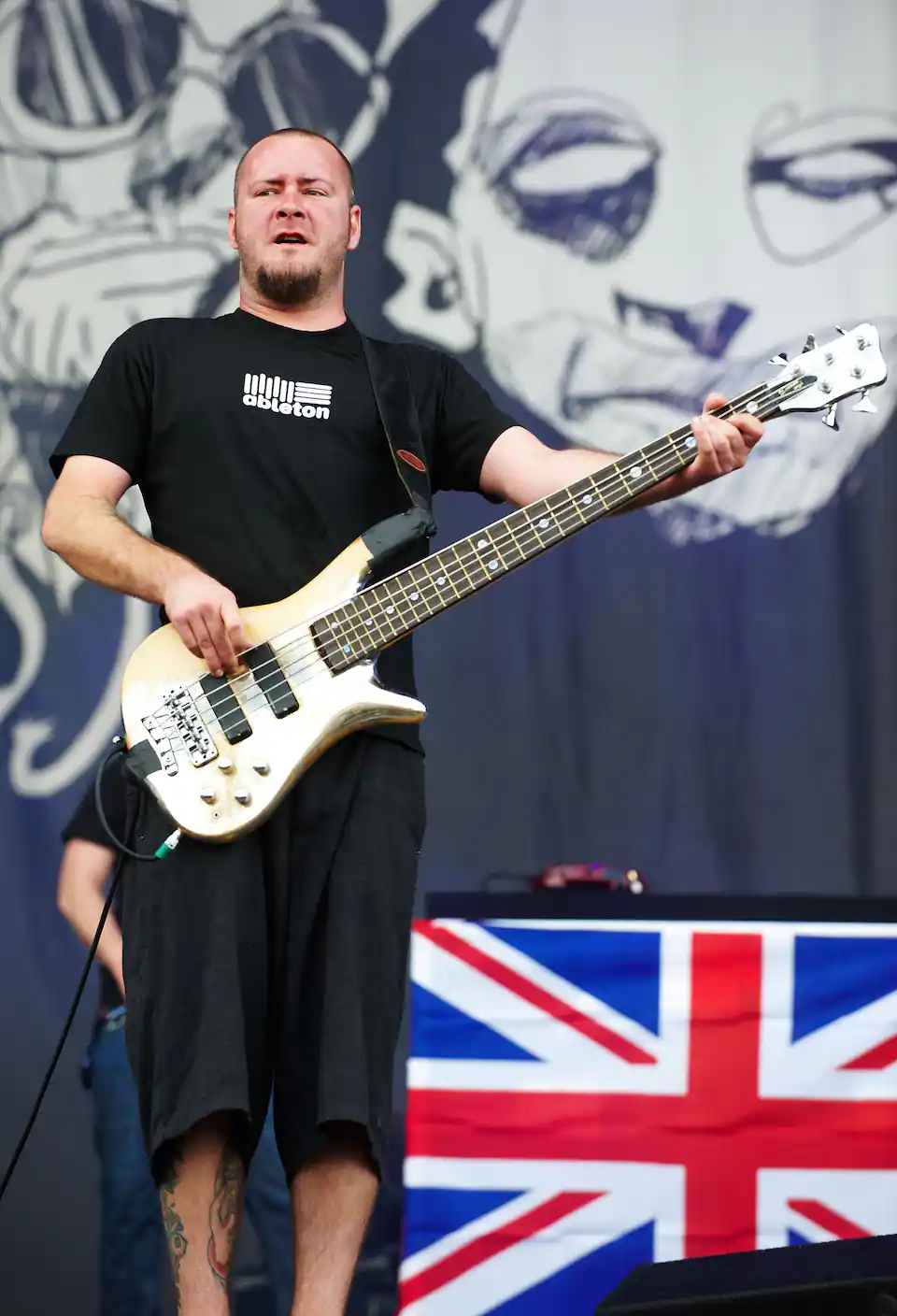Copyright Los Angeles Times

For the composer/star of “Tim Burton’s The Nightmare Before Christmas in Concert,” the annual Santa-centric holiday proved a bit scary as a kid growing up in Los Angeles. “Halloween was always my favorite night,” admits Danny Elfman, who is reprising his singing role as Jack Skellington, the Pumpkin King, for the 10th anniversary of the star-studded live version of 1993’s “The Nightmare Before Christmas” film. “Christmas time, I was a lonely Jewish kid with no friends to play with, and it would just be me and my brother looking at each other, and he’s like, ‘I’m gonna kick your ass.’” The Elfman of today — who, at 72, counts more than 100 feature film scores, themes for “The Simpsons,” “Spider-Man” and leading the lauded L.A. cult band Oingo Boingo among his numerous plaudits — could hardly have imagined his success. In fact, he says, “It’s amazing that I’m still alive, because I used to irradiate insects and try to create little mutants. This is like when I’m 14, and I built my own Geiger counter. I was a weird little kid. I had radioactive isotopes in my room. In the ’60s, you could just order some strontium-90, cobalt-60 and little packets of radioactive test site sand.” The self-confessed teenage nerd was dedicated to weird science as a vocation. “Music didn’t seem like an option to me when I got to high school, because all my musician friends started when they were kids, like most musicians do, right? So for me, the ship had sailed. I’m too late.” But fate intervened at West L.A.’s University High School in the form of a classmate who would also become an icon. “My girlfriend turned me on to early jazz,” Elfman remembers. “She used to listen to Billie Holiday and got me deep into that, because my first stuff I ever did was actually transcribing old jazz arrangements. But Kim Gordon [of Sonic Youth] was my first girlfriend. She already, by the age of 17, was like —.” Here Elfman pauses, recalling, “I don’t know how we got together, because I was the most awkward, uncool kid on the planet, and she was the coolest person then and now.” Clearly, his manic creativity, work ethic and obsession with radioactivity, Django Reinhardt and Cab Calloway — “the original old arrangements of ‘St. James Infirmary’ from the early ’30s … I didn’t even like the late ’30s; my music is like ’31 to ’33, thank you very much!” — set him up perfectly for what’s proven a lengthy and prolific collaboration with director Tim Burton. Underneath Elfman’s shock of red hair and cheerful demeanor is a creator who has “been playing and flirting with death since I was 20. Honestly, I’ve always felt that the Grim Reaper was right behind me and trying to catch me. Every birthday celebration is my way of saying, ‘F— you, death.’” His huge Hollywood studio/office/de facto museum speaks to Elfman’s preoccupation with mortality and the delightfully bizarre, with what seems like acres of heads in jars, Mark Ryden artwork, life-size wooden legs, Henry Darger prints, skulls, an antique pommel horse and Famous Monsters magazines on display. Seated in a hushed recording studio that will see him link up with Sydney, Australia, for a remote session at 4 p.m., the man with a physique that nearly broke the internet during his 2022 Coachella performance is voluble and easygoing and with a slightly mischievous air. If he’s the perfect Pumpkin King of Halloween Town for the Hollywood Bowl production, each year he’s working with a different cast. Past performances have seen a who’s who of stage and screen, including Paul Reubens (Pee-wee Herman), Catherine O’Hara, the late Ken Page, Phoebe Bridgers and local girl Billie Eilish. “Billie Eilish did a great Sally,” recalls Elfman, noting that the producers give him a list of potential cast members to consider for that year’s production. “It’s kind of just looking at possibilities, and then hoping, and then keeping my fingers crossed.” The 2025 cast includes Janelle Monáe as Sally, Keith David as Oogie Boogie, John Stamos as Lock and Riki Lindhome as Shock. As always, Elfman and the cast will be accompanied by a live orchestra and choir while the film plays on large screens. Elfman first saw Monáe at Coachella in 2019. “So when they offered up Janelle’s name, I just said, immediately, ‘Yes!’ She’s multi-talented, like Prince — plays guitar, sings, she could move, she could do whatever. She’s just so spectacular.” Stamos’ talent and star power is far-reaching — from TV’s “Full House” to performing with the Beach Boys — though he’s mostly known for his screen work. So when Elfman first saw a video of Stamos singing, he needed to make sure the actor was a strong harmony singer. “You have to be able to hold the harmony to do Lock, Shock and Barrel [“Nightmare’s” mischievous troublemakers], because we’re switching up harmonies and octaves.” Stamos joins a list of previous luminaries that include Fred Armisen, who was Lock in 2022 and 2023. “We did two years with Fred. And his wife, she’s so talented — I didn’t know they were married at first — Lindhome is Shock this year. I’d seen ‘Garfunkel and Oates’ [Lindhome’s comedy folk duo with Kate Micucci], so I knew Riki and knew that she had the personality.” While the Hollywood Bowl run is brief — Oct. 25 and 26 — it’s stressful for all involved, especially syncing up the live singing with the film. They weren’t even sure the 2015 debut could be pulled off successfully. “You know, most normal musicals, songs and music are more spread out,” Elfman explains. “But first off, there’s 10 songs. And secondly, there’s huge stretches with almost no breaks, so just the musicians literally having time to turn the page can be challenging.” Plus, it’s not like there are weeks of rehearsal time. “For me,” Elfman said, “the day before. This is the world of symphony, of orchestra music. There’s no weeks before. There’s no months before. The Elfman-Burton show at Albert Hall [first performed in 2013] had never been played before. We got two days instead of one to learn two hours of music that had never been done before by an orchestra, without any idea if my arrangements were gonna work. That’s the world of orchestras.” That said, Elfman was relieved to find that his audiences are forgiving. “One night at the Bowl, we got off so badly on a song that I just had to go, ‘Stop, stop.’ I said, ‘Sorry, folks, this is live.’ And [conductor] John [Mauceri] was like, ‘Look, go back to the beginning.’ They lined up the video, counted it off again,” recalls Elfman. “I swear it was the biggest ovation in that moment, restarting from a mistake. Again, it’s this reminder that they’re there for me. They’re not there to watch you fail, or to watch me fail. And if I fail, they’re with me, there to help me get past it. “It’s like walking a tightrope without a safety net and theater is the same way,” he furthers. “It’s what makes live so exciting. As my wife [Bridget Fonda] has put it to me, she said, ‘The audience is your safety net.’ It really is true.” And while the sing-along and dress-up aspects of “The Nightmare Before Christmas in Concert” are life-affirming and family-friendly despite an inherent darkness, it’s often the shadows where Elfman likes to dwell. He explains that “death is a fascination and a fear. It’s like the tenuousness of life. And, you know, in the year I spent in Africa [busking with his violin after high school], I almost died at least once, and I didn’t give a s—. From illness or seeing a black mamba cross the road a couple feet from me and going, ‘Ok, whatever, not this time.’ “It’s always been a thing with me. And so the fact that I’m still here is a miracle. My view of life is that we’re on an escalator, but we can only see behind us. You can’t see how many levels are in front of you until you get to that level where somebody taps you on the shoulder and goes, ‘You’re getting off here, Danny.’ So every year it’s like you’ve made it up another notch.” As for who might be waiting when he gets that tap, Elfman hopes for musical spirit guides. He breaks into an accent for each potential otherworldly greeter: “It might be [composer/conductor] Bernard Herrmann going, ‘Yeah, you did ok.’ It might be Stravinsky saying, ‘You never did get it right, did you? But it’s ok, we’ll talk.’ Or,” he concludes, “it might be Cab Calloway going, ‘Danny, you weren’t as good as me, but you were ok. You did alright.’”



